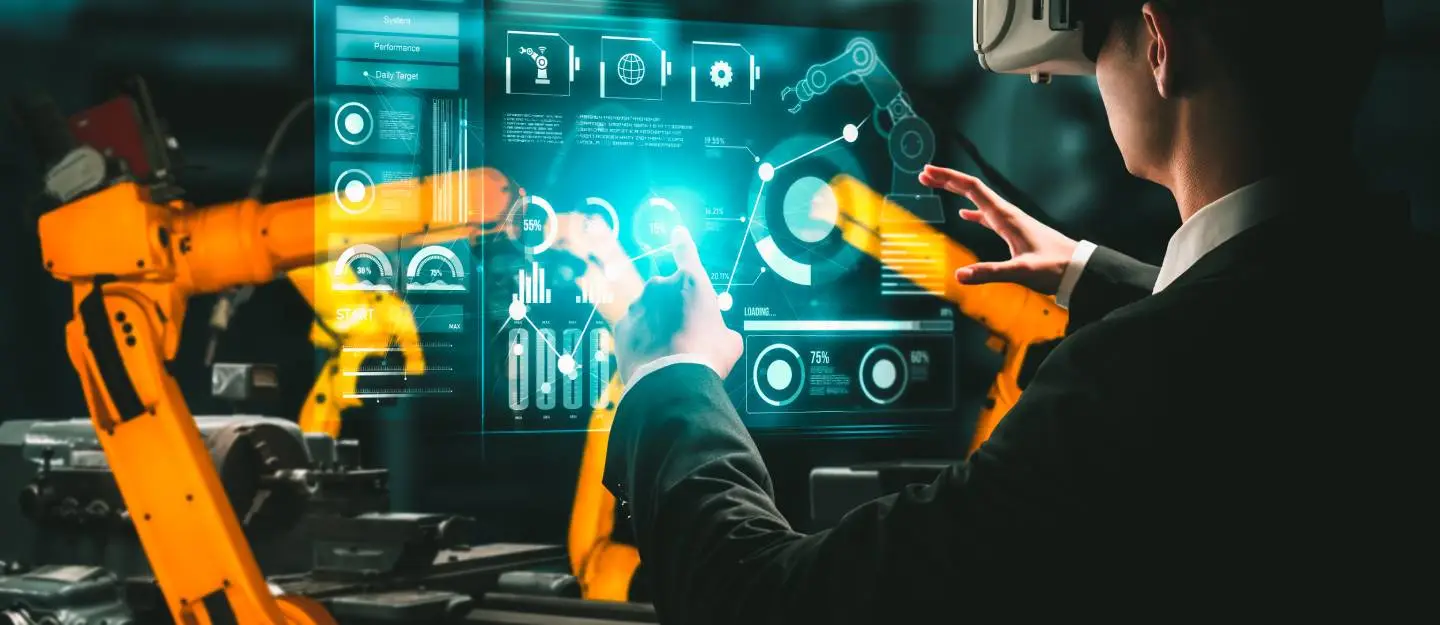Artificial Intelligence and automation are no longer futuristic concepts—they're reshaping how businesses operate today. From streamlining routine tasks to enabling predictive analytics, AI-powered automation is becoming the backbone of modern enterprise efficiency. This comprehensive exploration reveals how forward-thinking organizations are leveraging these technologies to gain competitive advantages and drive innovation.
The AI Revolution in Business
The integration of AI and automation into business operations represents one of the most significant technological shifts since the internet revolution. Organizations across industries are discovering that AI isn't just about replacing human tasks—it's about augmenting human capabilities and enabling entirely new ways of working.
Current AI Adoption Statistics:
of businesses plan to implement AI by 2025
reduction in operational costs through automation
improvement in decision-making speed
of executives report increased productivity
Key Areas of AI Implementation
Modern businesses are implementing AI and automation across various operational areas, each offering unique benefits and transformation opportunities.
1. Customer Service and Support
AI-powered customer service solutions are revolutionizing how businesses interact with customers, providing 24/7 support while reducing operational costs.
2. Supply Chain and Logistics
AI is transforming supply chain management by providing real-time visibility, predictive analytics, and automated decision-making capabilities.
"AI-driven supply chain optimization has reduced our inventory costs by 30% while improving delivery times by 25%. It's like having a crystal ball for demand forecasting." - Chief Supply Chain Officer, Fortune 500 Retailer
Supply Chain AI Applications:
Demand Forecasting
Machine learning algorithms analyze historical data, seasonal trends, and external factors to predict demand with 95% accuracy.
Route Optimization
AI algorithms optimize delivery routes in real-time, considering traffic, weather, and vehicle capacity.
3. Human Resources and Talent Management
HR departments are leveraging AI to streamline recruitment, improve employee engagement, and make data-driven decisions about talent management.
HR AI Innovations:
-
1
Intelligent Recruitment
AI screens resumes, conducts initial interviews, and matches candidates to roles with 90% accuracy.
-
2
Employee Analytics
Predictive models identify flight risk employees and suggest retention strategies.
-
3
Personalized Learning
AI creates customized training programs based on individual learning styles and career goals.
Financial Services and Accounting
The financial sector is experiencing a particularly dramatic transformation through AI automation, with applications ranging from fraud detection to algorithmic trading.
Revolutionary Finance AI Applications:
Fraud Detection and Prevention
Machine learning models analyze transaction patterns in real-time to identify suspicious activities with 99.9% accuracy.
- • Real-time transaction monitoring
- • Behavioral analysis and anomaly detection
- • Automated alert systems for suspicious activities
Automated Accounting and Bookkeeping
AI-powered systems automatically categorize expenses, reconcile accounts, and generate financial reports.
- • Invoice processing and approval workflows
- • Expense categorization and tax preparation
- • Financial forecasting and budget planning
Manufacturing and Quality Control
Smart manufacturing powered by AI is creating the factories of the future, where predictive maintenance, quality control, and production optimization work seamlessly together.
Industry 4.0 AI Solutions:
Predictive Maintenance
IoT sensors combined with machine learning algorithms predict equipment failures before they occur, reducing downtime by up to 50%.
Benefits:
- • 50% reduction in unplanned downtime
- • 25% decrease in maintenance costs
- • Extended equipment lifespan
- • Improved safety and reliability
Computer Vision Quality Control
AI-powered visual inspection systems detect defects with superhuman accuracy, ensuring consistent product quality.
Capabilities:
- • 99.9% defect detection accuracy
- • Real-time quality assessment
- • Automated reject/accept decisions
- • Continuous learning and improvement
Implementation Strategy and Best Practices
Successful AI implementation requires a strategic approach that balances technological capabilities with business objectives and organizational readiness.
Phase-by-Phase Implementation:
Assessment and Planning
Identify high-impact use cases, assess data readiness, and develop a comprehensive AI strategy aligned with business goals.
- • Business process analysis
- • Data quality assessment
- • ROI projections and success metrics
- • Change management planning
Pilot Project Development
Start with a focused pilot project to demonstrate value and build organizational confidence in AI capabilities.
- • Select low-risk, high-impact use case
- • Develop minimum viable AI solution
- • Measure and document results
- • Gather user feedback and iterate
Scale and Optimize
Expand successful AI implementations across the organization while continuously optimizing performance and ROI.
- • Enterprise-wide deployment
- • Integration with existing systems
- • Continuous monitoring and improvement
- • Employee training and adoption
Overcoming Implementation Challenges
While the benefits of AI automation are substantial, organizations often face common challenges during implementation. Understanding these obstacles and their solutions is crucial for success.
Common Implementation Challenges:
Measuring AI Success and ROI
Establishing clear metrics and measurement frameworks is essential for demonstrating AI value and guiding future investments.
Key Performance Indicators:
Operational Metrics
- • Process automation rate
- • Time reduction in key processes
- • Error rate improvements
- • Customer satisfaction scores
- • Employee productivity gains
Financial Metrics
- • Cost reduction per process
- • Revenue generation from AI initiatives
- • Return on AI investment (ROAI)
- • Time to value realization
- • Total cost of ownership (TCO)
The Future of AI in Business
As we look toward the future, AI and automation will continue to evolve, offering even more sophisticated capabilities and transformative potential for businesses across all industries.
Emerging Trends to Watch:
- Autonomous Business Processes: Fully self-managing systems that require minimal human intervention
- Hyper-Personalization: AI delivering individualized experiences at scale across all customer touchpoints
- Explainable AI: Transparent AI systems that can explain their decision-making processes
- Edge AI: AI processing moving closer to data sources for faster, more efficient operations
Start Your AI Automation Journey
Ready to transform your business with AI automation? DevLabyrinth's AI automation services help businesses implement intelligent solutions that drive efficiency and growth. From process automation to predictive analytics, we deliver AI solutions tailored to your industry.
Don't wait for competitors to gain the AI advantage. Schedule a free AI consultation to discover how automation can transform your business operations and deliver measurable ROI.




